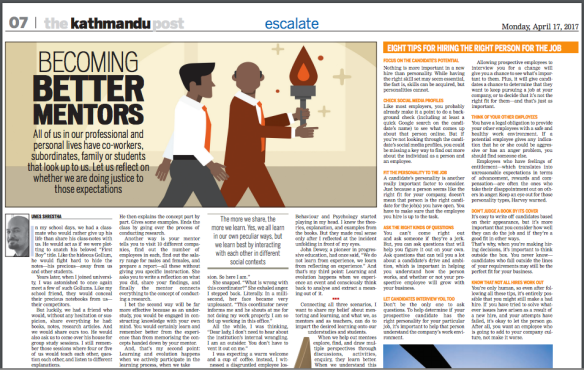Back in my school days, we had a classmate who would rather give up his life than share class-notes with us. He would act as if we were plotting to snatch his beloved “First Boy” title. Like the hideous Gollum of Lord of the Rings, he would fight hard to hide the notes – his precious – away from us and other students.
Years later, when I joined university, I was astonished to meet once again a few of such Gollums. Like my sneaky school friend, they would conceal their precious notebooks from us – their competitors.
But luckily, we had a friend who would, without any hesitation and suspicion, share everything he had: books, notes, research articles. And we would share ours too. He would also ask us to come over his house for group study sessions. I still remember those sessions where four or five of us would teach each other, question each other, and listen to different explanations.
For me, those sharing sessions resulted in deeper grip of the concepts that we were trying to master, and helped us become better thinkers, analyzers, and creators of our own interpretations. We would discuss, argue, and often indulge in intense verbal battle – and each time, we would develop newer perspective and better insights. Bottom line: we taught each other and made each other better.
And this brings to my first point. As Russian psychologist Lev Vygotsky proposed, learning happens best through social interaction. The more we share, the more we learn. Yes, we all learn in our own peculiar ways, but we learn best by interacting with each other in different social contexts.
***
Now, imagine your teacher was to teach the concept of research. One way is your teacher starts the class with the definition of research. Explains the concept part by part. Gives some examples. Ends the class by going over the process of conducting research. This is what usually happens.
Another way is your teacher tells the students to visit 10 different companies, find out the number of employees in each, find out the salary range for males and females, and prepare a report – all these without giving you specific instruction. Asks you to write a reflection on what you did, share your findings, and finally the teacher connects everything to the concept of conducting a research.
I bet the second way will be far more effective because as a student, you would be engaged in constructing knowledge with your own hands. You would certainly learn and remember better from the experience than from memorizing the definitions written by the teacher on the board.
And, that’s my second point: learning happens when we actively participate in the learning process, when we take part in co-creating the knowledge by diving into real (or realistic) situations.
***
Once I was invited for a guest-lecture session in a reputed business college in Kathmandu. When I arrived at the college’s reception, the lady behind the desk looked indifferent, then confused. She asked me ten different questions about me and what I was doing there. I tried to explain her: “Look miss, this person from your college had called me yesterday for the session. So here I am.”
She snapped, for some reason. “What is wrong with this coordinator?” She exhaled anger. I stepped back. Literally. In a millisecond, her face turned evil red, and eyes looked possessed. “This coordinator never informs me and he shouts at me for not doing work properly. I am so fed up working in this office.”
And, all that time, I was thinking, “Dear lady, I don’t need to hear these internal stuff. I am an outsider. You don’t have to vent out on me.”
I was expecting a warm welcome and a cup of coffee. Instead, I witnessed a disgruntled employee losing her cool and risking the organization’s hard-earned goodwill.
Later when I thought about the incident, the theories of Organizational Behavior and Psychology started bouncing back in my head. I knew the theories, explanation, and examples from the books. But they made real sense only after I reflected on the incident unfolding in front of my eyes.
John Dewey, a pioneer in progressive education, had once said, “We do not learn from experience, we learn from reflecting on experience.” And that’s my third point: learning happens when we experience an event and consciously think back to analyze and make a meaning out of it.
***
Connecting all three scenarios, let me tell you what I believe about teaching and learning, and what we, as teachers, can do make it better.
When we help students explore, find, and draw multiple perspectives through classroom discussions, activities, enquiry, they learn better. When we understand this concept, we can design learning situations that allow students to ‘learn by doing’ and we help them experience and reflect to construct new knowledge.
Let’s reflect. Are we simply teaching the content? Or are we creating helpful environment which allows students to interact? Are we merely giving them assignments? Or are we allowing them to work together, learn together? Are we constantly dumping knowledge on them? Or are we giving them opportunities to reflect on their learning?
Dear teachers, let’s reflect.
—–
A slightly modified version of this article was published on national daily The Kathmandu Post on April 17, 2017.

